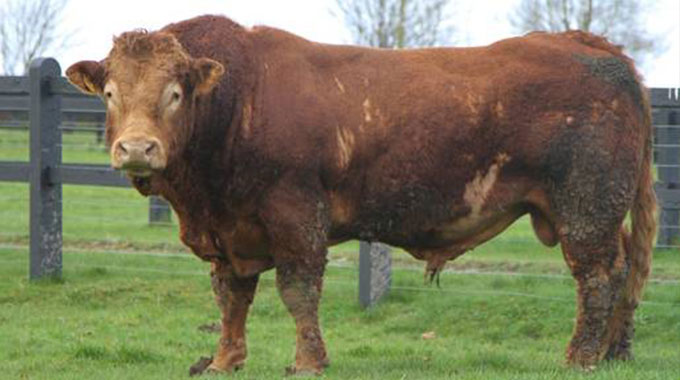
The Sunday News

ONE of the perennial challenges of livestock production in a communal system is the inadequacy of bulls.
There are large herds in the villages which communally graze and interact daily but are serviced by very few bulls.
This has resulted in the genetic pool of communal herds gravitating towards uniformity. In other words, most of the animals in communal herds are significantly genetically related resulting in what is known as inbreeding depression.
The critical question which always begs for an answer is why communal smallholder livestock producers find it not worthwhile to invest in good personal bulls. What causes a farmer to own close to a hundred herd of cattle but still find it not important to invest in bulls of his own? Are there intrinsic bull management aspects that make communal livestock farmers be reluctant to invest in bulls? What are the possible bull ownership and management models that can be adopted in communal livestock production systems?
The first issue to admit is that owning a bull in a communal production system can be a nightmare due to the conflicts that the bull creates. The bull can damage your neighbour’s kraal if there is a cow on heat inside. This in itself becomes a friction point with your neighbour as the destroyed kraal is not only an assignment to construct another one or for repairs, but animals from the damaged kraal can stray into the crop fields and the chain of quarrels increases.
The bull itself can stray into crop fields especially when it is done servicing the cow on heat. This is compounded by ungrateful and irresponsible neighbours who after seeing that your bull is done servicing their cow, they chase it away setting it on the path to invade the crop fields.
The result is that some farmers have lost highly-priced bulls after they have been axed by angry owners of the crop fields which have been grazed by the bull. So, these kind of farmers are very much in co-operation and appreciation of the bull for as long as it is still servicing their herd. After it is done it becomes a nuisance to them. Then you have farmers who become so possessive of their good quality bull(s) such that they will not want to see it servicing a neighbour’s cow.
Juju stories of mysterious abortions from cows serviced by bulls of possessive farmers, the belief is that the bulls have been made to induce abortions on cows belonging to other herds. You have to formally ask for the service of the bull if you want your cow to carry the calf to full term. Obviously, this cannot be scientifically corroborated hence it remains voodoo gossip.
Some development partners including the Government itself have tried to introduce bulls in communal set-ups to halt the effects of inbreeding by infusing new superior genetics. The success of such schemes still remains low because of the inherent challenges of communally owning an asset. Tragedy of the commons. However, it is uncontested that introduction of bulls into a communal herd still remains the most viable and effective method of improving the quality of animals in the communal herd.
It is thus instructive and imperative that models and mechanisms of introducing and managing bulls in a communal set-up need to be formulated and test if communal livestock farmers are to ever find it worth their while to invest in bulls. In the absence of viable and effective models communal livestock farmers will continue to view bulls as much more of a burden than a necessary component of the herd.
It should be driven home in the farmer’s mind that a bull is half of your herd which means half the genetic makeup of your herd is from a bull and therefore if you wanted to influence the complexion of your herd, there is no better way than investing in buying exactly the type of bull you want.
Having your animals randomly mating with any roaming bull means you have no control over the quality of the calf and subsequently the animal you will get. You are simply leaving the quality of your calves to happen by chance or by accident and this is by definition a poor business decision.
Uyabonga umntakaMakhumalo. Feedback [email protected]/cell 0772851275.



